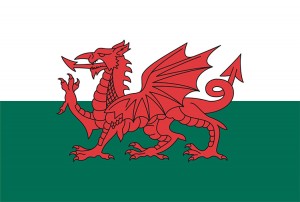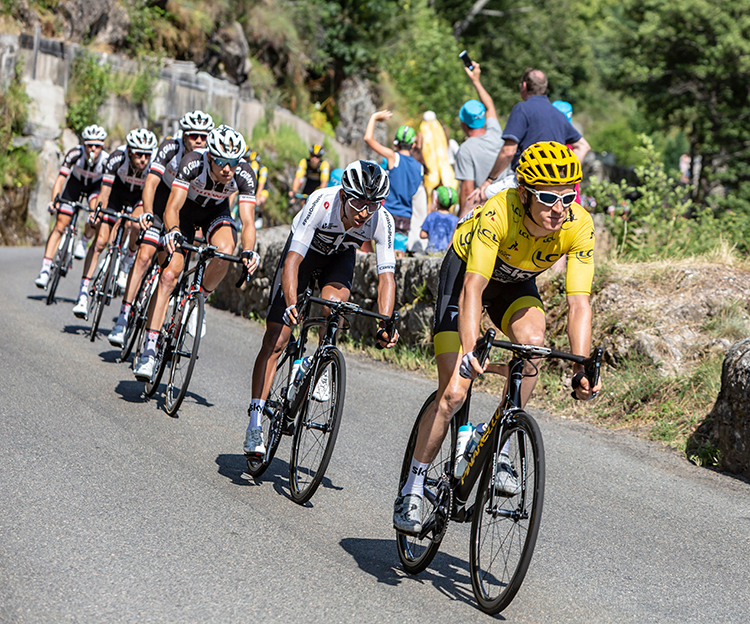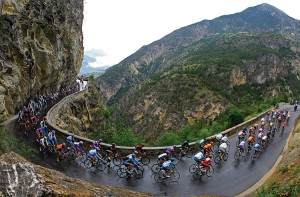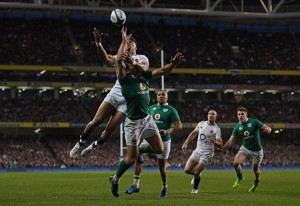Dydd Gŵyl Dewi Hapus
Monday, March 1st, 2021
The flag of Wales features a red dragon on two broad horizontal stripes of white and green. The dragon has been a Welsh symbol for nearly 2,000 years. Credit: © Viktor Ostrovsky, Shutterstock
Did you wake up this morning feeling the need to pin a leek in your lapel, wave a daffodil, or take your pet dragon for a walk? If so, you might be Welsh! Today is St. David’s Day, the day that the people of Wales celebrate their beloved country. David is the patron saint of Wales. A patron saint is a saint chosen to protect the interests of a country, place, group, trade or profession, or activity. St. David’s Day is celebrated every year on March 1.
The people of Wales will be celebrating St. David’s Day, from the capital city of Cardiff in the south to the idyllic northern village of Llanfairpwllgwyngyllgogerychwyrndrobwllllantysiliogogogoch. (Yes, that is the name of a real place!) The Welsh traditionally celebrate with parades and festivals called eisteddfods. (For those of you who skipped Welsh classes, it’s pronounced eye STEHTH vods.) As is the case in many countries, Wales is currently restricting social activities to reduce the spread of COVID-19. But the Welsh will certainly still celebrate! The Welsh flag will adorn homes, families will cook traditional Welsh recipes (including cawl – a souplike stew), and people will sing the national anthem (“Old Land of My Fathers”) with extra fervor.
Wales is one of the four countries that makes up the United Kingdom of Great Britain and Northern Ireland. The Welsh take great pride in their country. Although Wales has been united with England for more than 450 years, the Welsh have kept alive their own literature, traditions, and language—one of the oldest in Europe. The Welsh name for Wales is Cymru (pronounced KUHM ree.)
Wales is not alone in celebrating a national patron saint. For example, the English observe St. George’s Day on April 23, and the Scottish commemorate St. Andrew’s Day on November 30. Most famously, Irish people in many parts of the world celebrate St. Patrick’s Day on March 17.
You may associate St. Patrick’s Day with the color green—in Chicago they even dye the river bright green every year. For St. David’s Day, the color is red, from the bright red dragon that stands proudly on the Welsh flag. Other Welsh symbols include daffodils—considered the national flower—and the vegetable leek (considered the national emblem).
No matter where you live, we wish you a Happy St. David’s Day! Or as it’s said in Welsh, “Dydd Gŵyl Dewi Hapus!” (pronounced DEETH gwihl DEW ee HAHP uhs).





